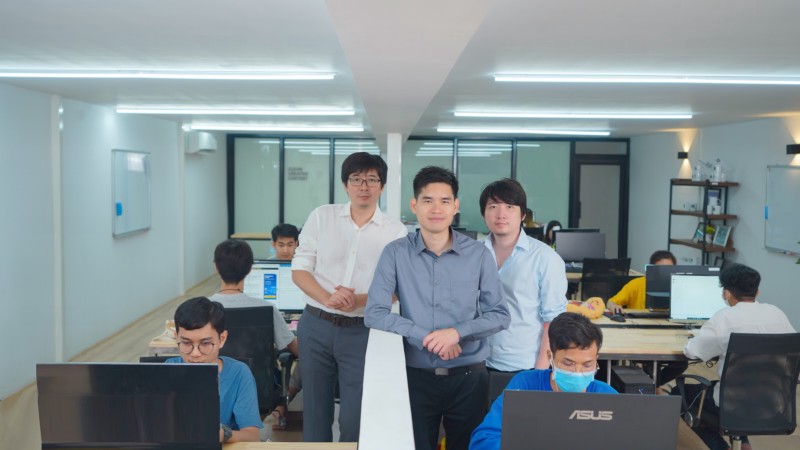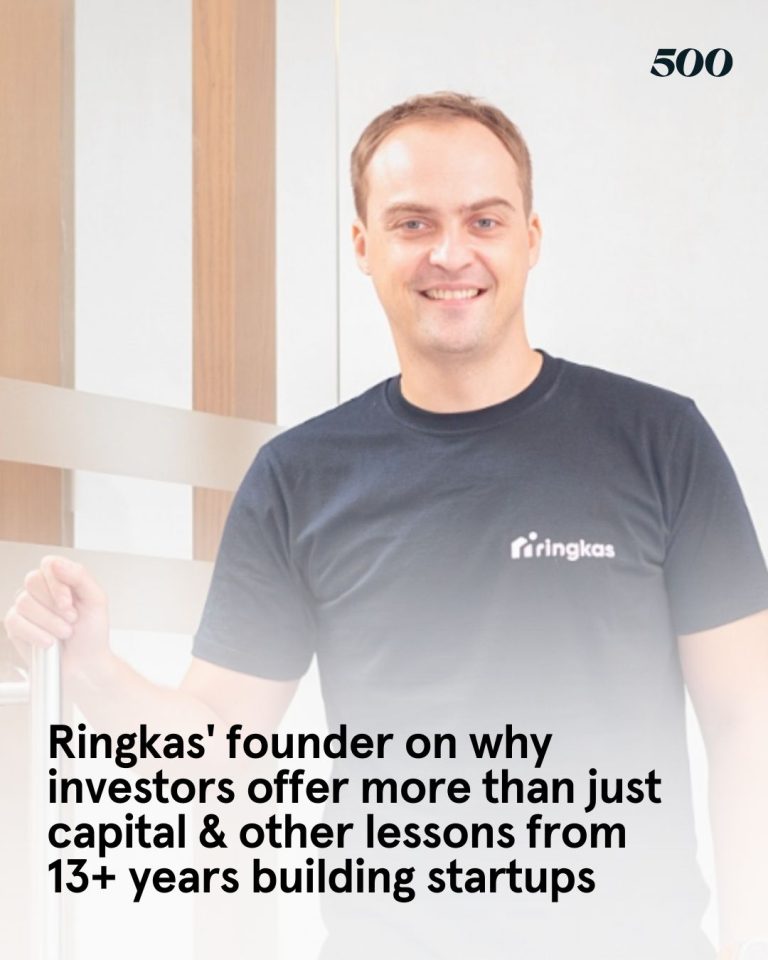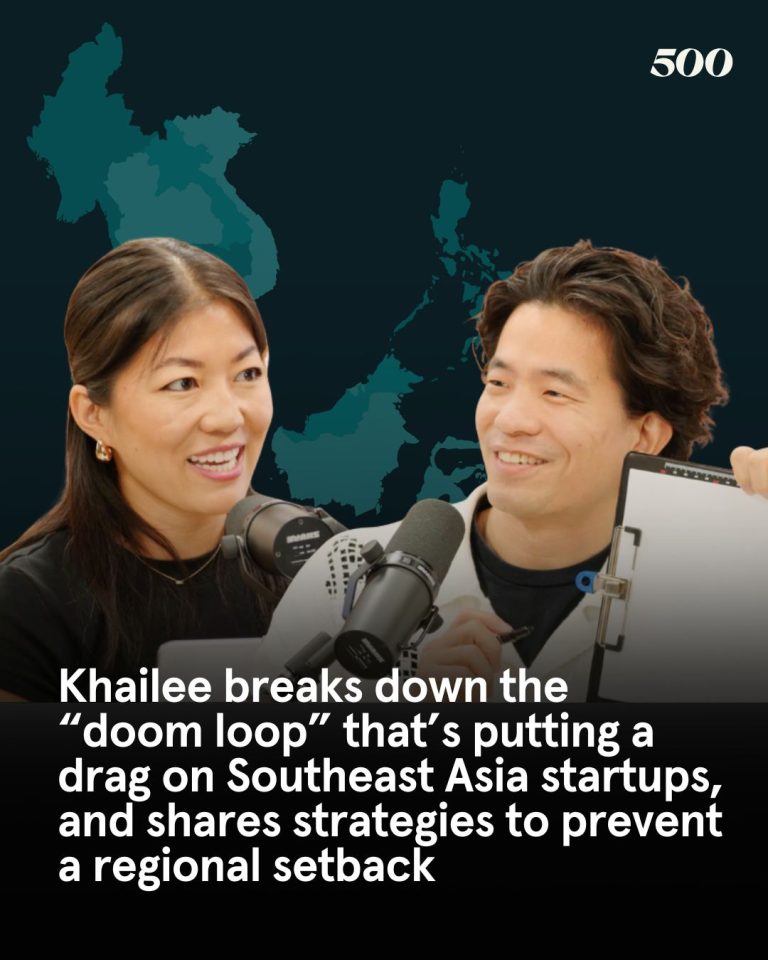
Content growth
- Cambodia-based media group Mediaload, which runs 500-backed Khmerload and Myanmarload in Myanmar, has secured an undisclosed amount of Series A funding from Thailand’s True Group.
- True Group is the telecom arm of Charoen Pokphand Group, a conglomerate that happens to be the country’s largest private company.
- The fresh investments will be channeled into expansion plans for the Southeast Asian region, according to reports.

- Founded in 2012, Mediaload’s two titles focus on easy-to-read content across topics like entertainment, culture, and sports. Think BuzzFeed but catered to local audiences.
- Khmerload has almost 5.8 million followers on Facebook, while Myanmarload has nine million.
- With True Group’s backing and its wide-spreading presence in Thailand, Indonesia, the Philippines, and Vietnam, Mediaload is poised to bring its brand of shareable content to more countries soon.
- Congrats on a successful round, Mediaload!
Cycling with peace
- 500-backed bicycle insurer Laka has a different approach in protecting cyclists.
- Founded in 2017, it goes against conventional norms by using a community-approach to insurance. Based on the “collective”, customers are charged a share of the cost of claims submitted in the previous month — up to a capped fee. 80% of those premiums go towards paying for other customers’ claims, and Laka said it then gets paid when the claim is settled.
- If there are no claims that month, customers don’t get charged anything.

- “Insurance should be a great thing, it should be a reassurance. This means we’re incentivised to pay out with a reasonable and valid claim, and it rebuilds the insurance proposition around the customer,” CTO and co-founder Ben Allen told the Evening Standard.
- Laka’s processes are all cloud-based, enabling the team to make adjustments or add features when needed. This was particularly useful during the pandemic when the company was able to deploy Recovery, a policy designed to support cyclists on and off the bike. Partnering with healthcare professionals, Laka aims to offer cyclists all they need to get back to full fitness if they’re injured.
- Read Laka’s full feature on the Evening Standard here.
Adapt and innovate
- 500-backed Grab’s ride-hailing business was severely affected when movement restriction orders were implemented during the Covid-19 pandemic.
- But the company adapted its tech stack to cope with the crisis.
- Russell Cohen, Grab’s managing director of operations, told TechCrunch the driver app has allowed switching between ride-hailing and on-demand delivery requests. According to Russell, more than 149,000 drivers began performing on-demand deliveries for the first time, with Singapore, Malaysia and Thailand seeing the most conversions.

- To accommodate the surge of entrepreneurs onboarding Grab’s merchant platform, the company programmed a self-service feature to expedite the process.
- “This is a massive sector of the Southeast Asian economy that effectively digitized within a matter of weeks,” Russell added.
- Grab also counted on partnerships with local municipalities and governments in different countries to make deliveries more efficient. One example is the GrabExpress Car pilot programme, launched in Singapore in September that enabled ride-hailing vehicles to be used for food and grocery deliveries.
- As the company continues to adapt during a time of unpredictability, Russell believes flexibility is imperative moving forward.
- “Purchasing behaviors have changed, so for us, when we think about the supply side, the drivers’ side, that means we’ve got to make sure our fleet is flexible.”
- Hear Russell speak more on TechCrunch.
Missed out the last Daily Markup? Go here to check it out.
You can also find us on LinkedIn, Facebook, Twitter, and Instagram.

500 Startups is a venture capital firm on a mission to discover and back the world’s most talented entrepreneurs, help them create successful companies at scale, and build thriving global ecosystems. In Southeast Asia, 500 Startups invests through the pioneering 500 Southeast Asia family of funds. The 500 Southeast Asia funds have backed over 240 companies across multiple sectors from internet to consumer to deep technology. It continues to connect founders with capital, expertise and powerful regional and global networks to help them succeed.
This post is intended solely for general informational or educational purposes only. 500 Startups Management Company, L.L.C. and its affiliates (collectively “500 Startups”) makes no representation as to the accuracy or information in this post and while reasonable steps have been taken to ensure that the information herein is accurate and up-to-date, no liability can be accepted for any error or omissions. All third party links in this post have not been independently verified by 500 Startups and the inclusion of such links should not be interpreted as an endorsement or confirmation of the content within. Information about portfolio companies’ markets, competitors, performance, and fundraising has been provided by those companies’ founders and has not been independently verified. Under no circumstances should any content in this post be construed as investment, legal, tax or accounting advice by 500 Startups, or an offer to provide any investment advisory service with regard to securities by 500 Startups. No content or information in this post should be construed as an offer to sell or solicitation of interest to purchase any securities advised by 500 Startups. Prospective investors considering an investment into any 500 Startups fund should not consider or construe this content as fund marketing material. The views expressed herein are as at the date of this post and are subject to change without notice. One or more 500 Startups fund may have a financial interest in one or more of the companies discussed.




